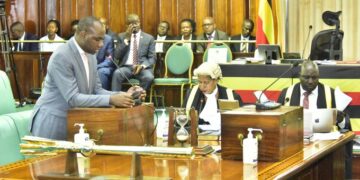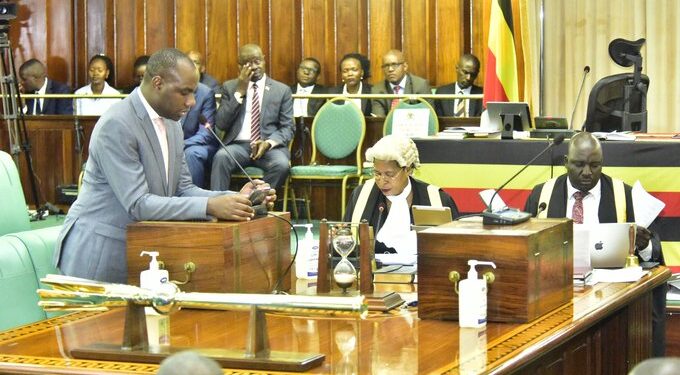Parliament has passed into law the Value Added Tax Amendment Bill 2024, giving the government powers to collect VAT on donated goods or services given by an employer to an employee.
The government had argued that employers had been abusing the provision by using it as an avenue to give free taxable goods to their employees without consideration but claim input credit for the goods supplied, arguing that this was an abuse of the law since URA, on the other hand, cannot recover output VAT.
The Opposition in the minority report had described such a move as inhumane, saying it would discourage companies from making donations.
The Leader of Opposition, Joel Ssenyonyi, asked the government when it intends to address the concerns raised by traders on the need to lower the VAT rates from 18% to 16%, given that this would have been the time for Government to remedy the situation, in order to avert future strikes within the business community.
“When traders reached out to us as Government and as leaders, we understand there were meetings scheduled with Executive, and they had critical concerns and the assumption they have been having is that is that this Bill (Value Added Tax Amendment Bill) is the remedy to their concerns, now, they are wondering the remedies that are exactly coming through because they had certain proposals like VAT lessened to 16%,” said Ssenyonyi.
“Not long ago, Gov’t told us there was going to be a meeting to harmonize but this House hasn’t been kept in the loop on what exactly is happening. Now the traders are going to assume that we have now responded to their concerns through this bill, which isn’t the truth. The government needs to update us, did we just push the matter of the traders under the rug and move on swiftly because the traders haven’t moved on and they said if these concerns aren’t addressed, they will protest again. I don’t know whether we want to continue having a back and forth because when they close their shops, the economy is affected,” he added.

Income Tax
Parliament also passed the Income Tax Amendment Bill 2024, further extending Bujagali Energy Limited tax waiver for another year, despite a warning by Auditor General, John Muwanga about the Shs1.417Trn haemorrhage Uganda lost through tax exemptions in 2022/23 alone.
In his December 2023 audit report, Muwanga noted that Uganda’s foregone taxes through tax waivers amounted to Shs1.417Trn, with Parliament leading the dishing out of tax waivers worth Shs1.293Trn, while the Ministry of Finance waived taxes amounting to Shs118.5Bn and John Musinguzi, Commissioner General of URA also caught the exemption craze by exempting taxes worth Shs5.575Bn.
Overpaid tax
MPs also approved the proposal to increase the threshold for claiming for refund of overpaid tax from Shs5M to Shs10M.
The government had proposed the threshold to be increased to Shs50M. However, Parliament rejected the Shs50M threshold noting that increasing the threshold to such an amount will have the effect of incapacitating Small and Medium Enterprises (SMEs) from claiming for the overpaid tax, which will negatively affect their business.
In the proposal, refunds below Shs10m shall be automatically carried forward to offset the output for the next financial year.
The government’s proposal to impose a penalty on withholding agents for failure to withhold tax has been rejected by Parliament on grounds that such a proposal shifts URA’s mandate to the taxpayer, yet all URA registered taxpayers are required to issue EFRIS or invoices and this gives URA visibility of transactions by such tax Payers on grounds.
The Ministry of Finance had initially proposed that a withholding agent who fails to withhold tax in accordance with this Act shall be personally liable to pay to the Commissioner the amount of tax which has not been withheld, but the withholding agent is entitled to recover this amount from the person.









